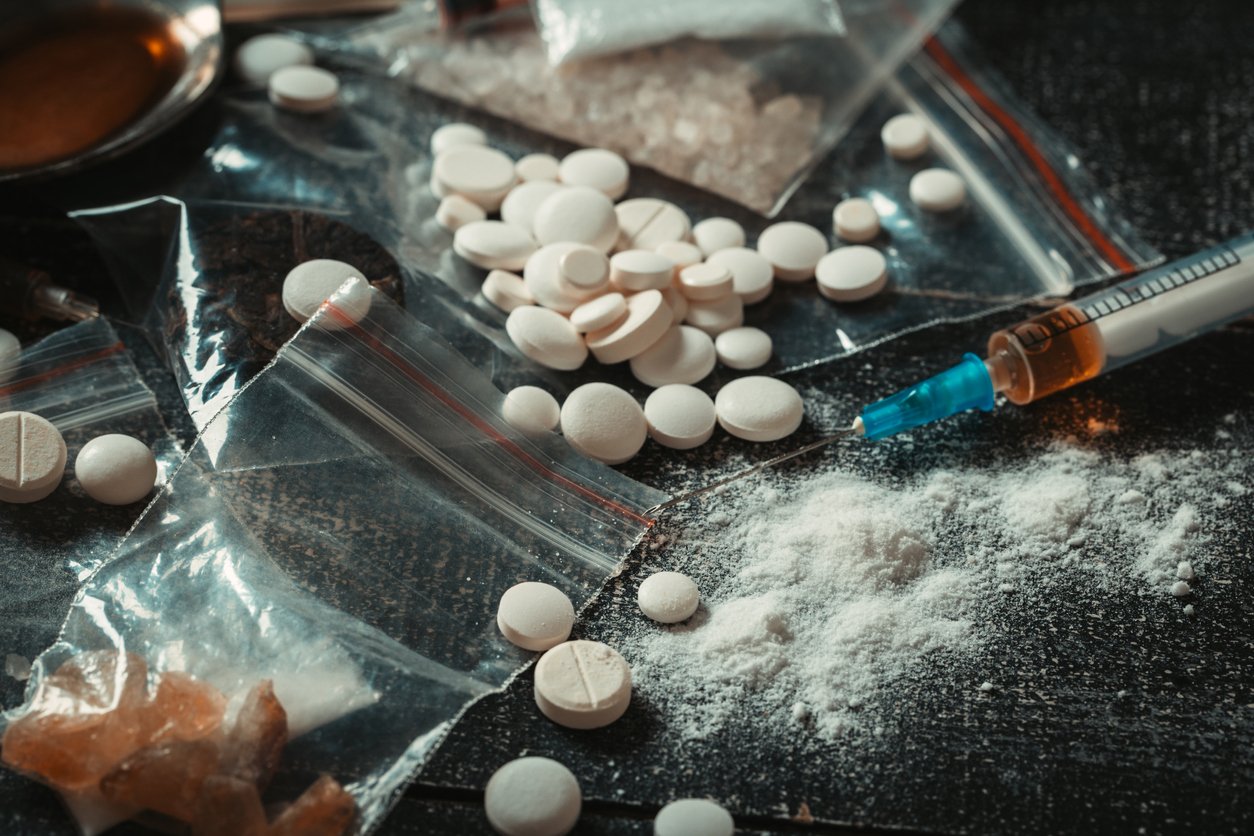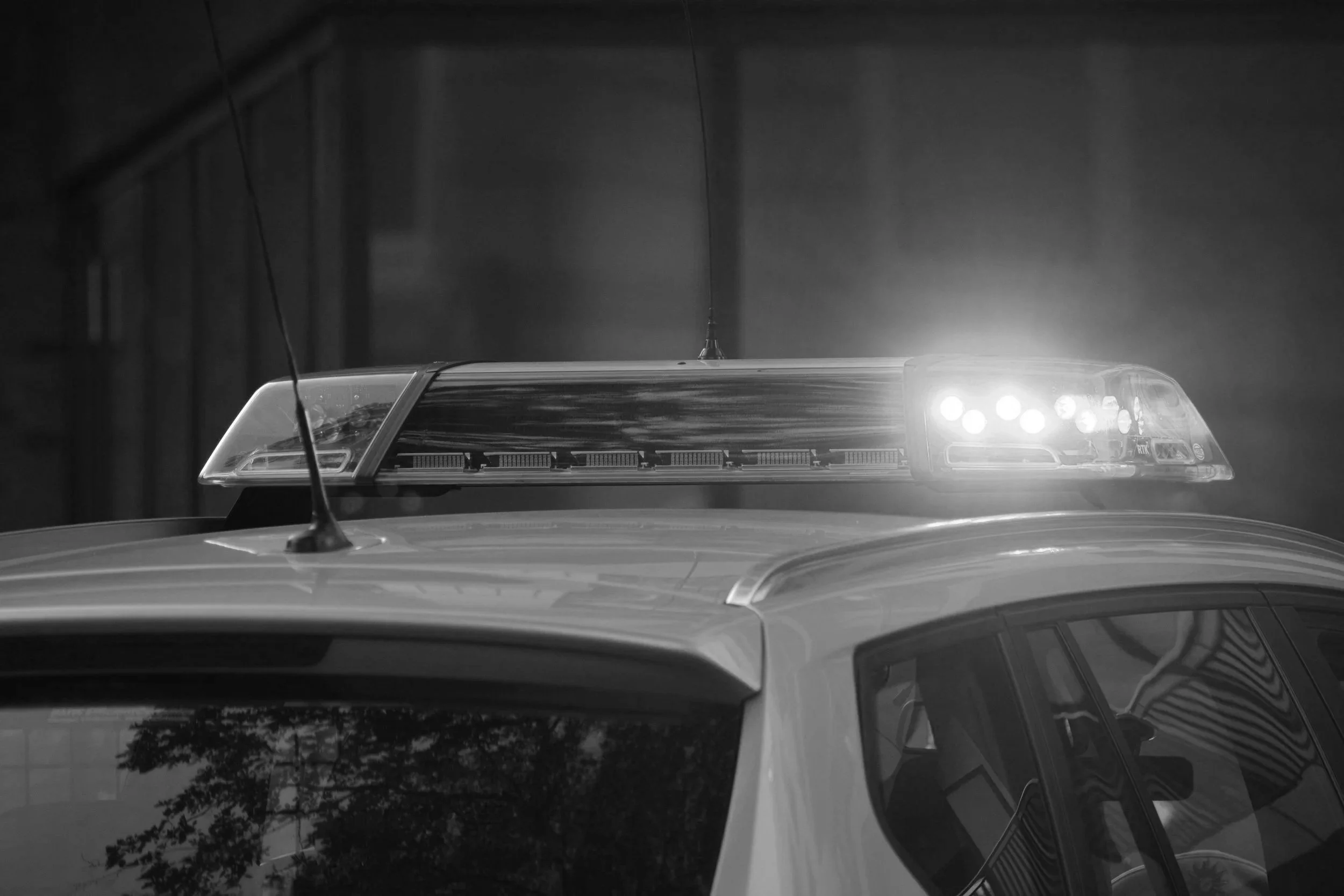
Chicago Drug Crime Lawyer
Chicago Drug Crime Defense Attorney
Drug Charges in Chicago, IL
Drug-related charges can lead to serious legal consequences that may affect the rest of your life. Whether you're facing charges for possession, distribution, manufacturing, or trafficking, it’s critical to have a strong legal defense to protect your rights and future. In a city like Chicago, where drug-related offenses are heavily prosecuted, having a Chicago drug crime lawyer by your side can make all the difference in your case.
Understanding Drug Crimes in Chicago
Drug crimes in Chicago are prosecuted aggressively, and the penalties can be severe depending on the nature of the charges. These offenses can range from simple possession of a controlled substance to more serious charges such as manufacturing, distributing, or trafficking drugs. Illinois drug laws classify offenses by the type and quantity of the drug, with harsher penalties for larger amounts and more dangerous substances, such as heroin, cocaine, and methamphetamines.
For instance, under Illinois law, possession of even small amounts of certain Schedule I or II controlled substances (like heroin or cocaine) can be a felony. Possessing 15 grams or less of these substances can be a Class 4 felony, carrying 1 to 3 years in prison. As the quantity increases to 100 grams or more, so do the potential prison sentences and substantial fines. Charges for manufacturing or delivering drugs carry even harsher penalties, sometimes reaching Class X felony status with decades in prison and fines up to $500,000. Regardless of the severity of the charges you face, working with a Chicago drug crime attorney is essential to building a defense that can reduce or eliminate the penalties you might face.
The Consequences of a Drug Crime Conviction
The penalties for drug crimes in Chicago vary depending on several factors, including the type of drug involved, the quantity, and any previous criminal history. Common penalties for drug offenses may include:
Fines: Convictions can result in hefty fines, with the amount depending on the severity of the offense.
Jail or Prison Time: Serious drug offenses can lead to long-term imprisonment. Even minor offenses can result in months or years behind bars.
Probation: Some offenders may be placed on probation, which involves strict conditions that must be followed to avoid further legal consequences.
Permanent Criminal Record: A drug crime conviction can leave you with a permanent criminal record, which may affect your ability to find employment, secure housing, or pursue higher education.
Asset Forfeiture: In many cases, property, vehicles, or cash believed to be connected to drug activity can be seized by the state.
Loss of Professional Licenses: A drug conviction can lead to the suspension or revocation of professional licenses, impacting your career.
Impact on Immigration Status: For non-citizens, a drug conviction can lead to deportation or make it difficult to obtain a visa or green card.
Given these potential outcomes, it is critical to consult with a qualified Drug Offenses Lawyer who can help minimize the impact of these charges.
How Our Chicago Drug Crime Lawyer Can Help
If you have been charged with a drug crime in Chicago, your first step should be to contact a Chicago drug crime defense attorney. An attorney will be able to evaluate your case, identify potential defenses, and develop a strategy to fight the charges against you. At Bernard Law, our team of Chicago drug crime defense lawyer is dedicated to defending clients facing a variety of drug-related offenses, from simple possession to serious felony charges.
Investigating Your Case
A Chicago drug lawyer will start by conducting a thorough investigation of the facts surrounding your case. This includes reviewing the evidence presented by the prosecution, such as police reports, witness testimony, and any physical evidence like the drugs themselves. Your attorney will look for weaknesses in the prosecution’s case, such as illegal searches, mishandling of evidence, or improper procedures used during your arrest. These factors could be grounds for having the charges reduced or even dismissed.
Challenging the Prosecution's Evidence
One of the key roles of a Chicago drug crime lawyer is to challenge the evidence against you. In many drug cases, the prosecution relies on evidence obtained through search and seizure. However, if law enforcement violated your rights by conducting an illegal search, any evidence obtained may be inadmissible in court. Your attorney will work to suppress this evidence, which could weaken the prosecution's case significantly. This could involve questioning the validity of search warrants, arguing that police lacked probable cause for a search, or demonstrating that the scope of the search exceeded legal limits.
Negotiating Plea Bargains or Reduced Sentences
In some cases, it may be in your best interest to negotiate a plea deal with the prosecution. A drug offenses lawyer will negotiate on your behalf to reduce the charges or minimize the penalties. This could involve pleading guilty to a lesser charge in exchange for a reduced sentence, such as probation instead of prison time, or enrollment in a drug diversion program. Your attorney will carefully assess your case and advise you on the best course of action based on the circumstances, always prioritizing your long-term well-being.
Building a Strong Defense
If your case goes to trial, your Chicago drug crime defense attorney will build a strong defense to challenge the prosecution’s case. This may include questioning the credibility of witnesses, challenging the validity of the evidence, and presenting alternative explanations for the events in question. Your attorney's goal will be to create enough doubt in the minds of the jury to achieve a not-guilty verdict or, at the very least, a reduced sentence. This includes presenting evidence that supports your innocence, such as alibi witnesses, or demonstrating that the drugs were not knowingly in your possession or control. They can also argue entrapment if law enforcement induced you to commit a crime you otherwise would not have.

Common Drug Charges in Chicago, IL
Drug-related charges can lead to severe legal consequences, impacting your freedom, finances, and future. Whether you are facing charges for possession, distribution, manufacturing, or trafficking, it is critical to have a strong legal defense. These offenses are prosecuted aggressively, and the penalties can be severe depending on the nature of the charges. Understanding the different types of Drug Charges in Chicago, IL is the first step in building an effective defense.
Possession of a Controlled Substance in Chicago, IL
Possessing a controlled substance is a felony case carrying a possible prison sentence. Depending on the type and amount of drug, Illinois law sometimes requires mandatory prison sentences without the possibility of probation. This offense commonly involves being in possession of cocaine, heroin, LSD, ecstasy, methamphetamine, or mushrooms. The higher amount of a controlled substance a person is found in possession of, the more severe the consequences. For example, possession of 15 grams or less of heroin or cocaine is a Class 4 felony, but it can quickly escalate to a Class 1 felony for larger amounts. In addition, a person can be charged with a felony offense if they are in possession of prescription medication without a prescription. Navigating these complexities requires a dedicated Drug Charges Attorney Chicago IL to protect your rights.
Manufacturing/Distributing/Possession with Intent to Distribute a Controlled Substance in Illinois
A person arrested and charged with Manufacturing/Distributing a controlled substance faces much more severe penalties. For example, if a person is in possession of up to only 1 gram of heroin with intent to distribute, they can face a possible 7-year prison sentence. The State will need to prove that the person not only was in possession of the drug but that they had the intent to distribute. For example, having the drug in multiple small baggies with a scale can be evidence of distribution. A skilled Chicago Drug Crime Defense Attorney will challenge the prosecution's claim of intent, arguing that such evidence is circumstantial and does not prove that the defendant intended to sell the substance.
Possession of Cannabis in Chicago, IL
It is well known that possession of cannabis in the State of Illinois is legal for adults. However, there are still laws that restrict the amount of cannabis a person can have in their possession, as well as how cannabis can be transported. Violating some of these laws can still subject an individual to being arrested and facing fines or other penalties. An individual may be charged if they are in possession of more than the legally allowed amount, which for residents is 30 grams of cannabis flower, 5 grams of cannabis concentrate, or 500 mg of THC in a cannabis-infused product. Having a Drug Offenses Lawyer on your side is crucial if you are accused of violating these laws, even if you thought your actions were legal.
Cannabis in a Motor Vehicle in Chicago, IL
The State of Illinois requires that cannabis be kept in a sealed, odor-proof container while being transported in a motor vehicle. It is a common misconception that the police cannot search a vehicle if they smell an odor of cannabis coming from it. This is a crucial point for a Chicago Drug Crime Lawyer to address.
Probable Cause + Drug Crimes
If an officer smells the odor of cannabis coming from a vehicle, they can search the vehicle wherever it can be found. Officers commonly use the odor of cannabis as a pretextual basis to search the entire vehicle for evidence of other crimes. This is a tactic that can be legally challenged. The U.S. Supreme Court has held that the odor of cannabis alone can establish probable cause for a vehicle search. However, a skilled criminal defense attorney Chicago can challenge the officer's claim of probable cause, questioning their training and credibility regarding the ability to identify the odor. They can also argue that the original traffic stop was illegal, which would make any evidence found during the subsequent search inadmissible in court. Working with a lawyer is essential to scrutinize the details of your case and determine if a legal challenge to the probable cause argument is possible.
Frequently Asked Questions: Drug Charges
-
Drug crimes encompass a wide range of offenses, including drug possession, distribution, trafficking, manufacturing, and cultivation of illegal substances or controlled substances without proper authorization.
-
The penalties for drug crimes vary depending on factors such as the type and quantity of drugs involved, prior criminal history, and jurisdiction. They can include fines, probation, mandatory drug treatment programs, community service, and imprisonment.
-
Yes, you can still be charged with a drug crime if you are found to have constructive possession, meaning you had control or knowledge of the drugs, even if they were not physically on your person.
-
No, drugs are classified into different schedules or categories based on their potential for abuse and accepted medical uses. The penalties for drug crimes can vary based on the schedule of the drug involved.
-
Common defenses include challenging the legality of the search and seizure, questioning the chain of custody of the evidence, disputing the ownership or knowledge of the drugs, and raising issues regarding law enforcement misconduct.
-
Generally, if you have a valid prescription for a controlled substance and are using it in accordance with the prescription, you should not face drug charges in Chicago, IL. However, it is important to have proper documentation and use medications as prescribed.
-
Yes, certain drug offenses can be prosecuted at the federal level, especially those involving large quantities of drugs, interstate trafficking, or drug-related activities that cross state or international borders.
-
Yes, possessing drug paraphernalia, such as pipes, syringes, or scales, can be a separate offense and may result in drug-related charges, even if no drugs are present.
-
Sharing prescription medication without a legitimate medical purpose can be illegal and result in drug-related charges, as it may be considered illegal distribution or possession of controlled substances.
-
It is highly recommended to consult with a skilled chicago drug crime attorney if you are facing drug-related charges. They can assess your case, protect your rights, build a strong defense strategy, and advocate for the best possible outcome on your behalf.
-
You should consider hiring a drug crime defense lawyer as soon as you become aware of potential charges or an investigation related to drug offenses. Whether you're facing possession, distribution, manufacturing, or trafficking charges, a skilled defense lawyer can provide expert guidance from the initial stages, protect your rights during questioning, gather evidence, and build a strong defense strategy to ensure the best possible outcome for your case.
-
The cost of hiring a drug crime defense lawyer can vary depending on factors such as the complexity of your case, the lawyer's experience, and the services provided. On average, fees can range from a few thousand dollars to several tens of thousands. Some lawyers offer flat fees for specific services, while others charge hourly rates. It's recommended to consult with potential lawyers to get a clear understanding of their pricing structure and the services included in their fees.
-
Choose a chicago drug lawyer by researching their expertise and experience in drug law, assessing their specialization, reputation, and communication skills. Attend initial consultations to evaluate case strategies and resources, while also considering comfort and local knowledge. Prioritize transparency and a strong client testimonial record to make an informed decision.
-
Hiring a drug crime lawyer is crucial if you've been charged or accused because drug charges can result in severe consequences. An experienced lawyer understands the legal nuances, potential defenses, and can safeguard your rights throughout the process. They can negotiate with prosecutors, challenge evidence, and work towards minimizing penalties or even having charges dismissed, ensuring the best possible outcome for your case.
-
To win or reduce drug crime charges, employ strategies such as scrutinizing evidence for flaws, challenging constitutional violations, discrediting witnesses, and negotiating plea bargains for reduced charges or alternative sentencing. An experienced attorney can employ these tactics effectively, increasing your chances of a favorable outcome in your case.
-
Penalties for a drug charge can vary based on factors like the type of drug, quantity, your criminal history, and state laws. They may include fines, probation, mandatory drug education programs, community service, and even imprisonment. Severe cases might lead to lengthy prison sentences and significant fines. Consulting a lawyer is essential to understand potential penalties specific to your situation.
-
A person in possession of cocaine, heroin, prescription medication (without a prescription), or "Ecstasy" or "Molly" (MDMA) will be charged with a felony offense. The quantity of the drug a person is in possession of determines what class felony a person can be charged with. Often times a person is in possession of an amount that requires a prison sentence if that person is found guilty.
Therefore, if you are charged with PCS, you should obtain an attorney who is well acquainted with the laws surrounding search and seizures. There are many instances in which law enforcement officers either intentionally or unintentionally violate the law in the process of discovering a person in possession of a drug. In this situation, our chicago drug crime lawyer will file a "Motion to Suppress Evidence" in attempt to have the case dismissed. Call Bernard Law for a free consultation.
-
Choose Bernard Law, P.C. as your drug crime attorney in Chicago for our extensive experience in handling complex drug cases. Our dedicated team understands the intricacies of drug laws, defenses, and local court procedures. We prioritize your rights, offering personalized attention and a strategic approach to build a strong defense. With a proven track record, we are committed to achieving the best possible outcome for your case.
-
Yes, under Illinois law, a civil process known as asset forfeiture allows law enforcement to seize cash, vehicles, real estate, and other personal property if it is believed to be connected to a drug crime. This can happen even if you are not convicted of a crime or even formally charged. If your property is seized, you must act quickly to file a claim to get it back, as there are strict legal deadlines. A lawyer can help you challenge the forfeiture and argue that the property was not linked to any illegal activity or that the seizure was unlawful.
-
State drug charges in Chicago, IL, are prosecuted under Illinois law and typically involve offenses that occur within the state's borders. Federal drug charges, on the other hand, are prosecuted by the U.S. Attorney's office and often involve larger-scale crimes such as drug trafficking across state lines, conspiracies, or offenses investigated by federal agencies like the DEA. Federal charges generally carry much more severe penalties, including mandatory minimum sentences, and are heard in federal court rather than a state court.







